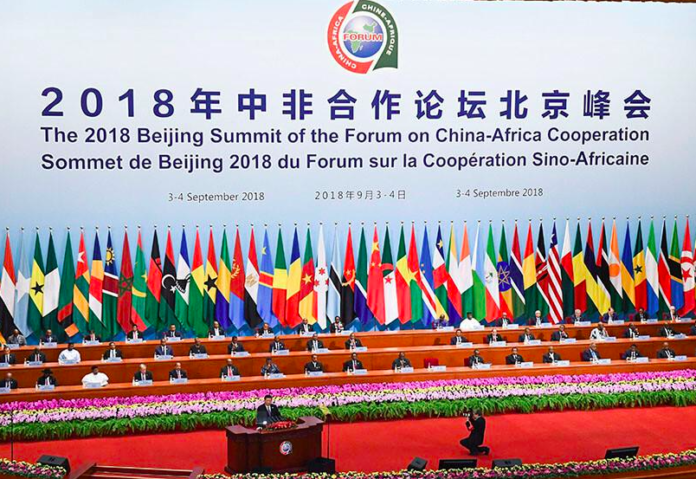
The economic partnership between China and African countries has been growing over the past two decades. China has become Africa’s largest trading partner, and Chinese investments have been pouring into various sectors of the African economy. However, the China-Africa economic partnership has also been criticized for its lack of transparency, environmental impact, and debt sustainability. In this article, we will explore the facts and reality of the China-Africa economic partnership.
Facts of China-Africa Economic Partnership
China-Africa trade has been growing rapidly over the past two decades. In 2000, China’s trade with Africa was $10 billion. By 2020, it had reached $210 billion, making China Africa’s largest trading partner. China’s imports from Africa are mainly oil, minerals, and agricultural products, while China exports a wide range of goods, including machinery, electronics, and textiles.
Chinese investment in Africa has also been growing rapidly. According to data from the China Global Investment Tracker, China has invested over $300 billion in Africa since 2005. The investments are mainly in the infrastructure, energy, and mining sectors. Chinese companies have built roads, bridges, railways, and ports in many African countries. Chinese investments have also been driving growth in the renewable energy sector in Africa, with China financing the construction of numerous solar and wind projects.
The reality of China-Africa Economic Partnership
Despite the rapid growth in trade and investment between China and Africa, there are also concerns about the impact of the partnership on African countries. Critics of the China-Africa economic partnership argue that it is mainly driven by China’s desire to access African natural resources, and that it is not creating sustainable economic growth in Africa.
Debt sustainability is a significant concern in the China-Africa economic partnership. African countries have been borrowing heavily from China to fund infrastructure projects, and concerns have been raised about the sustainability of the debt. Many African countries have already been struggling with high levels of debt, and there are fears that the loans from China could lead to a debt crisis. The Chinese government has also been accused of using debt as a tool of diplomacy, with some analysts suggesting that China may use debt as leverage to gain strategic advantages in Africa.
Another concern is the lack of transparency in Chinese investments in Africa. Many Chinese investments in Africa are made through state-owned enterprises, which often operate in secrecy. Critics argue that this lack of transparency makes it difficult to assess the impact of Chinese investments on African economies and raises questions about accountability and governance.
There are also concerns about the environmental impact of Chinese investments in Africa. Chinese companies have been accused of engaging in environmentally damaging practices in African countries, such as illegal mining and deforestation. Chinese investments in the energy sector have also been criticized for their heavy reliance on coal, which contributes to air pollution and greenhouse gas emissions.
Addressing the challenges of China-Africa Economic Partnership
To address the challenges of the China-Africa economic partnership, African countries need to adopt a more strategic approach to the partnership. African governments need to negotiate better terms for loans and investments from China, such as longer repayment periods, lower interest rates, and a greater focus on sustainability. African governments also need to develop clear strategies for leveraging Chinese investments to create sustainable economic growth.
Chinese companies operating in Africa need to operate in a more transparent and accountable manner. Chinese companies need to be more sensitive to local environmental concerns and engage in environmentally sustainable practices. They also need to be more proactive in engaging with local communities and building local capacity.
The Chinese government also has a role to play in addressing the challenges of the China-Africa economic partnership. China needs to be more transparent about its investments in Africa and engage in more open and transparent dialogue with African governments and civil society. China also needs to adopt more sustainable investment practices and focus on creating long-termvalue for African countries, rather than just extracting natural resources.
Furthermore, African countries should also look to diversify their economic ties beyond China. While the China-Africa economic partnership has brought significant benefits to Africa, it is important to ensure that African economies are not overly dependent on China. African countries should look to develop economic partnerships with other countries and regions, such as Europe, the United States, and other Asian countries. Diversifying economic ties will help reduce the risks of overreliance on any one partner and create opportunities for African countries to access new markets and technologies.
In conclusion, the China-Africa economic partnership has been growing rapidly over the past two decades, with China becoming Africa’s largest trading partner and investor. While the partnership has brought significant benefits to African countries, there are also concerns about debt sustainability, lack of transparency, environmental impact, and overreliance on China. To address these challenges, African countries need to adopt a more strategic approach to the partnership, negotiate better terms for loans and investments, and diversify their economic ties beyond China. The Chinese government and Chinese companies operating in Africa also need to be more transparent, accountable, and focused on creating long-term value for African countries. By addressing these challenges, the China-Africa economic partnership has the potential to create sustainable economic growth and development in Africa.






























































